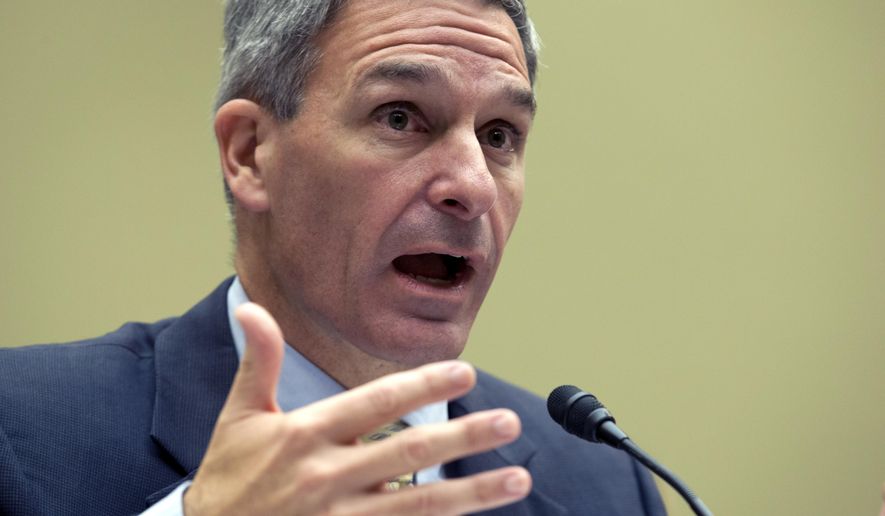BOSTON (AP) - A top federal immigration official said Wednesday that he takes responsibility for and regrets how the Trump administration’s now rescinded decision to stop considering requests from immigrants seeking to defer deportation for medical treatment and other hardships played out.
Acting U.S. Citizenship and Immigration Services Director Ken Cuccinelli told congressional lawmakers he was solely responsible for the widely criticized Aug. 7 policy change.
He deflected pointed questions from Democratic Rep. Ayanna Pressley of Massachusetts about whether the directive came from Trump or prominent members of the Republican president’s White House staff.
“I made this decision alone,” Cuccinelli responded during his House Oversight Committee testimony.
The former Virginia Attorney General, who is on Trump’s shortlist to head Homeland Security despite potential legal complications, also said “it was a mistake” how the decision was rolled out.
“If I had to do it over again, I would not have applied it to people who had been pending,” Cuccinelli said. “If for no other reason than to ease the information out and to not surprise them with a change in circumstance.”
The USCIS on Aug. 7 notified hundreds of immigrants who had applied for the deferred action on their deportation that it was no longer considering the requests, except in the cases of military families. The agency said the pending applicants had 33 days to leave the country or face deportation.
But when pressed by Pressley and other Democrats, Cuccinelli stopped short of saying he would guarantee the continuation of the deferred action policy if he’s tapped as Homeland Security Secretary.
He argued that reviewing the one thousand or so deferral requests the agency receives annually takes away from other priorities, including naturalization cases.
“We have limited resources,” Cuccinelli said. “There are trade-offs.”
Deferred action is a decades-old humanitarian relief policy that allows foreign nationals to temporarily work and receive health benefits while they or their family members go through major hardships, such as receiving treatment for serious medical conditions.
It doesn’t provide a pathway to citizenship but is renewable every two years.
Immigration activists had complained the administration’s abrupt termination of the policy was done without the advance public notice and justification required by law.
Outgoing Acting Homeland Security Secretary Kevin McAleenan reversed the decision last month after Boston civil rights groups filed a federal lawsuit and the House Oversight Committee held a contentious hearing .
The American Civil Liberties Union and other Massachusetts groups, meanwhile, announced Wednesday they’ve agreed to a 90-day stay on their federal lawsuit while USCIS resumes considering deferral requests.




Please read our comment policy before commenting.